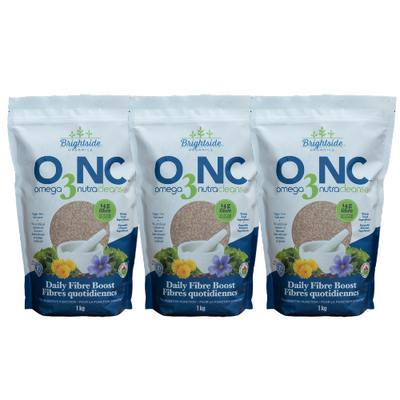What’s the Deal with fibre?
The topic of fibre is everywhere, from cereal commercials promising extra helpings of psyllium, to doctors advising we eat more of it during annual check-ups. It sounds like a good thing, but WHY?
fibre is a really big deal when it comes to digestive health. Think of it as a broom for your intestinal tract: fibre saves the day by sweeping clean your colon, which is imperative for a healthy bowel. Since overall health really begins in this area of the body, it’s incredibly important that we keep it clean and working well.
So, how do you get more of this amazing fibre into your diet?
Fruit and Vegetables
Asparagus
Fruit and veggies are a great source of both soluble (the meat of the plant) and insoluble (the peels) fibre. They help create healthy bowel movements, and give your body a massive injection of vitamins, minerals, and antioxidants. Corn, because you can’t break it down to digest it very well, is actually a great source of insoluble fibre—it stays intact, but sweeps everything out of the body with it.
Whole Grains
Wheat Bran Flakes Cereal Breakfast With Rolled Oats
Grains like sprouted buckwheat, brown rice, quinoa, and steel cut oats are fantastic sources of soluble fibre. They also lower cholesterol. There’s a huge difference between unprocessed or less-processed grains, and very processed grains. Always buy sprouted and brown varieties, because they retain the most fibre. When grains have been heavily processed (like white bread and rice), most of the original nutrients, including the fibre, have been stripped away. For example, whole grain wraps have 5 grams of fibre, while white or coloured ones have only 1 gram.
An interesting side note: dairy and meat contain zero fibre.
fibre Foods
NutraCleanseTM
This is where it gets tricky: there are a lot of commercial products out there that are marketed to consumers as being equal, but all supplements are definitely not created equal. Some are really processed, and therefore have half the fibre they should have.
Because NutraCleanseTM contains minimal, raw, relatively unprocessed ingredients like ground flax seed, it works wonders for the digestive tract. Teeming with high-fibre ingredients that are medicinally helpful and supportive to the body, it really packs a massive punch when it comes to supplementing your digestive tract with the nutrients it needs. One third of a cup of this bad boy contains 14 grams of fibre—now that’s amazing.
fibre is a really big deal when it comes to digestive health. Think of it as a broom for your intestinal tract: fibre saves the day by sweeping clean your colon, which is imperative for a healthy bowel. Since overall health really begins in this area of the body, it’s incredibly important that we keep it clean and working well.
So, how do you get more of this amazing fibre into your diet?
Fruit and Vegetables
Asparagus
Fruit and veggies are a great source of both soluble (the meat of the plant) and insoluble (the peels) fibre. They help create healthy bowel movements, and give your body a massive injection of vitamins, minerals, and antioxidants. Corn, because you can’t break it down to digest it very well, is actually a great source of insoluble fibre—it stays intact, but sweeps everything out of the body with it.
Whole Grains
Wheat Bran Flakes Cereal Breakfast With Rolled Oats
Grains like sprouted buckwheat, brown rice, quinoa, and steel cut oats are fantastic sources of soluble fibre. They also lower cholesterol. There’s a huge difference between unprocessed or less-processed grains, and very processed grains. Always buy sprouted and brown varieties, because they retain the most fibre. When grains have been heavily processed (like white bread and rice), most of the original nutrients, including the fibre, have been stripped away. For example, whole grain wraps have 5 grams of fibre, while white or coloured ones have only 1 gram.
An interesting side note: dairy and meat contain zero fibre.
fibre Foods
NutraCleanseTM
This is where it gets tricky: there are a lot of commercial products out there that are marketed to consumers as being equal, but all supplements are definitely not created equal. Some are really processed, and therefore have half the fibre they should have.
Because NutraCleanseTM contains minimal, raw, relatively unprocessed ingredients like ground flax seed, it works wonders for the digestive tract. Teeming with high-fibre ingredients that are medicinally helpful and supportive to the body, it really packs a massive punch when it comes to supplementing your digestive tract with the nutrients it needs. One third of a cup of this bad boy contains 14 grams of fibre—now that’s amazing.


